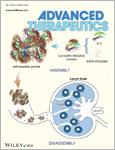Extracellular vesicles (EVs) are lipid-membrane-enclosed particles released from cells, playing a pivotal role in cellular communication, particularly within the immune system. The fundamental molecular mechanisms through which EVs offer unique functionality for immunotherapeutic benefits are identified and reviewed. The focus is on three essential features, all rooted in the EV lipid membrane: immune receptor–ligand interactions at the EV membrane interface, the shielding of immunogenic cargo within the EVs, and the fusion of EVs with target cell membranes for direct cargo delivery. From this, how these distinct EV attributes, from their initial description and analysis in immune communication, have led to the development of novel immunotherapeutic strategies is traced. This review delves into how these strategies are applied in various immunotherapies, such as cancer immunotherapy, autoimmune diseases, infections, vaccinations, and graft-versus-host diseases, to modulate communication among different cell types for immune regulation. It is concluded by reviewing clinical trials involving EVs in immunotherapy that have effectively harnessed EVs' unique molecular mechanisms in clinical settings. Research and standardization efforts to maximize the potential impact of EVs on immunotherapy are further suggested.

